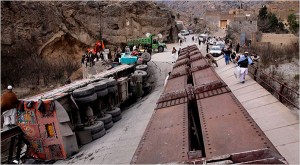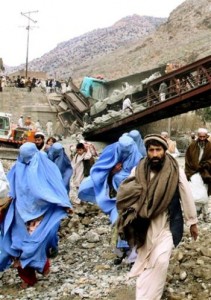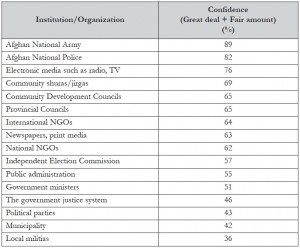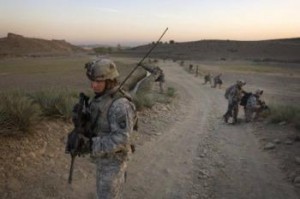India and the West: Profiles in the Politics of War
BY Herschel SmithIn Miliband Encourages Terrorism we covered the recent visit to India, the connection drawn by Miliband between the Mumbai attacks and the solution to Kashmir, and the hardening of the Indian world view as a result of this political pressure.
Continuing with but expanding on this same theme, Professor M.D. Nalapat of Manipal University gives us a raw reaction to the Miliband visit and the message he brought.
Someone forgot to tell Britain’s foreign secretary and would-be prime minister, David Miliband, that the Union Jack no longer flies over New Delhi’s Viceregal Palace, now renamed “Rashtrapati Bhavan,” or “Head of the Nation House.” During his visit to India last month, his hosts found Miliband’s conduct and views so offensive that a relatively junior official from the External Affairs Ministry was trotted out to insist that India did not need “unsolicited” advice.
The official was referring to Miliband’s motif during the visit – that New Delhi ought to make concessions on Kashmir so the Pakistan army would assist NATO with more sincerity and efficacy than it has since the 2001 NATO-Taliban war started in Afghanistan.
Clearly, Miliband is unaware of the dynamics of decision making in a democracy. He appears to view India in the same league as China, Pakistan or Saudi Arabia, in each of which a single institution – the Communist Party, the army and the monarchy, respectively – calls the shots.
Were Indian Prime Minister Manmohan Singh and External Affairs Minister Pranab Mukherjee to follow Miliband’s peremptory advice – enabling the Pakistan army to gain through diplomacy concessions that they have thus far been unable to wrest by jihad – not only would domestic politics in India be inflamed to Bangladeshi proportions, but the Wahabbis that control the Pakistan army would be able to recover some of the ground they have lost with regard to public opinion and moderate civil society.
As for Afghanistan, Miliband has fallen into the same delusion as did former U.S. President George W. Bush in 2001 – that the Pakistan army is interested in the defeat of the Taliban. In reality, so dense are the linkages between the army and the Taliban that the lower ranks would sabotage any order from the generals to seriously do battle with the jihadists, should any of the top brass give such a command …
It is ironic that elements in so many NATO states would like to see India punished in Kashmir for achieving precisely what the alliance has itself failed to do in Afghanistan, which is to beat back the jihadists. In 2001, this writer suggested to friends in the U.S. administration that it was India rather than Pakistan that would be the more desirable ally in the War on Terror. But George W. Bush chose Pakistan. Fortunately for him, he will be on perhaps the second volume of his memoirs before the consequences of this error of judgment become evident in his country.
The Captain’s Journal has discussed the Pakistani duplicity before too, and it’s time to update this perspective with more recent observations, but first we’ll briefly rehearse some background. In Joint Ingelligence Centers, we warned against the use of isolated joint intelligence centers due to the difficulty of force protection. But we assumed that these centers would actually be conducting aggressive and meaningful intelligence gathering. As it turns out, this assumption may be false, and thus far these centers have not been successful due to the Pakistani forces.
Some U.S. military officers say mistrust among the staff of a new intelligence outpost in Afghanistan’s remote Khyber Pass is limiting its effectiveness.
While officers remain hopeful about the Khyber Border Coordination Center, the security situation along the critical supply lines in the area remains dicey, the Washington Post reported Monday.
NATO, Afghan and Pakistani troops man the center with the goal of reducing Taliban activity and keeping trade and military supplies moving.
Along with language and logistical issues still being worked out, there has been some grumbling that the Pakistani contingent has been less than enthusiastic about cracking down on guerrillas and local bandits.
“There’s a hell of a lot of lip service,” said one U.S. officer who remained anonymous. “The Pakistanis talk a good game but don’t play a good game.”
This perspective of Pakistani intentions isn’t dissimilar to that of Professor Nalapat. In fact, it’s a fairly safe bet that India’s current administration is not only confirmed in its intention to combat terror within its own borders, but that it’s message to Miliband was only a warmup for the same thing for the U.S. administration.
India has warned US President Barack Obama that he risks “barking up the wrong tree” if he seeks to broker a settlement between Pakistan and India over the disputed territory of Kashmir.
MK Narayanan, India’s national security advisor, said that the new US administration was in danger of dredging up out of date Clinton administration-era strategies in a bid to bring about improved ties between the two nuclear armed neighbours.
“I do think that we could make President Obama understand, if he does nurse any such view, that he is barking up the wrong tree. I think Kashmir today has become one of the quieter and safer places in this part of the world,” Mr Narayanan said in an interview with CNBC TV18.
“It’s possible that at this time there are elements, perhaps in the administration who are harking back to the pre-2000 era.”
The message is consistent, whether from the administration in India or Professor Nalapat. Kashmir is a success for India. Jihad has been beaten back, and to suggest that it be placed on the bargaining block is a reversion to the politics of previous administrations. It simply won’t be acceptable.
A one final note, as a favor to Medvedev who recently pledged two billion in financial aid, the only remaining air base in central Asia, Manas in Kyrgyzstan, is soon to close, making air supplies to Afghanistan much more difficult. Yet consider a map of Jammu and Kashmir, and the possibility of sea transit of supplies to India, truck transport to Indian-administered Kashmir, and then overflights to Afghanistan.
India may indeed be a far better and more productive partner in the global counterinsurgency in which we are engaged than Pakistan.







